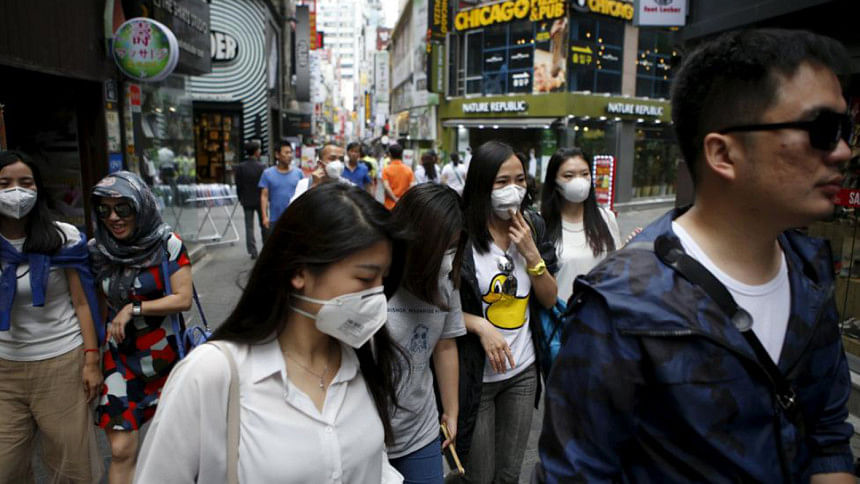S Korea MERS epidemic: worst may be over

South Korea has sealed off two hospitals that treated people with a deadly respiratory disease, officials said today, even as the outbreak that has been spreading through health facilities could have peaked.
Middle East Respiratory Syndrome has infected 126 people in South Korea and killed 11 since it was first diagnosed just over three weeks ago in a businessman who had returned from a trip to the Middle East.
The outbreak is the largest outside Saudi Arabia, where the disease was first identified in humans in 2012, and has stirred fears in Asia of a repeat of a 2002-03 scare when Severe Acute Respiratory Syndrome (SARS) killed about 800 people worldwide.
The 68-year-old man who brought the virus back from the Middle East visited several health centers for treatment of a nagging cough and fever before he was diagnosed, leaving a trail of infection in his wake.
The danger of the virus in hospitals had led to two being sealed off with at least 133 people - patients and staff - inside. They would be sealed off for at least the next 11 days, given the incubation period of the virus, officials said.

"No patients can get out of their rooms," said a city government official in the capital, Seoul, who declined to be identified.
"Nurses in protective gear are giving them food. No one can get in from outside."
All but one of South Korea's cases have been confirmed as originating with the businessman who traveled to the Middle East and happening in health-care centers, and the last one is likely to be confirmed as such too, the health ministry said.
WORST OVER?
MERS is caused by a coronavirus from the same family as the one that caused SARS. It is more deadly than SARS but does not spread as easily, at least for now. There is no cure or vaccine.
World Health Organization (WHO) experts are in South Korea working with the government and a delegation of Saudi Arabian health officials is meeting authorities on Friday.
The health ministry reported four new cases on Friday, the lowest daily increase in 11 days, raising hope the worst might be over.
The number of people in quarantine, either at home or in medical facilities, also declined for the first time, by 125 to 3,680, the ministry said.
The incubation period for many people exposed to infected patients is ending, which should mean a decline in new cases, said infectious disease expert Jacob Lee.
"There may be a third wave from hospitals that MERS patients had stayed at but it won't spread as much as it has," Lee told Reuters.
The central bank cut interest rates on Thursday in the hope of softening the blow to an economy already beset by slack demand and plunging visitor arrivals.
Alarm has spread throughout the region even though only one case has been reported outside South Korea in this outbreak, that of a South Korean man who traveled to China via Hong Kong after defying a suggestion from health authorities that he stay in voluntary quarantine at home.
South Korea's new cases bring the total number of MERS cases globally to 1,275, based on WHO data, with at least 450 related deaths.

 For all latest news, follow The Daily Star's Google News channel.
For all latest news, follow The Daily Star's Google News channel. 



Comments